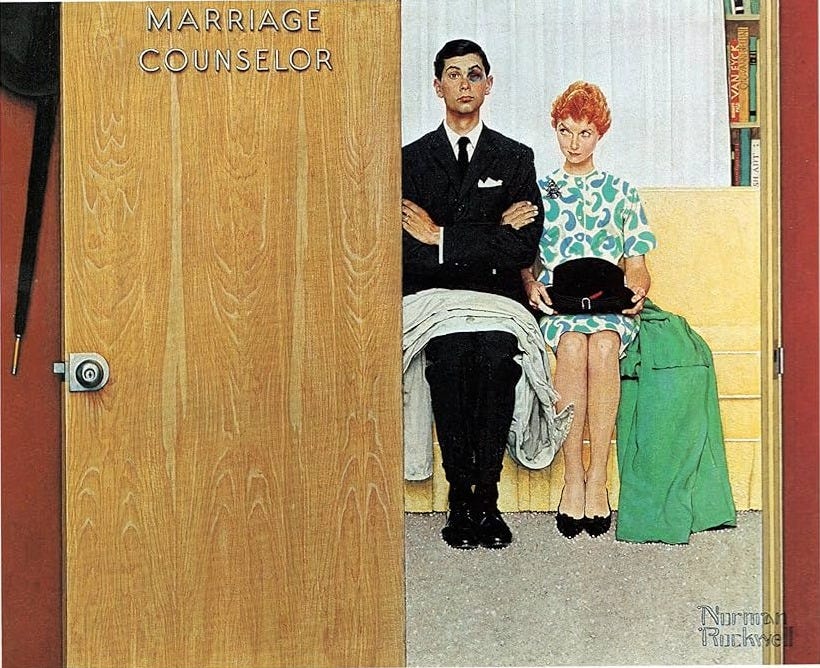I thought, given recent events, this is a moment to explore what research tells us about having hard conversations, connecting even when we disagree, and crossing the gaps that separate us.
The good news: We can connect, even when we disagree, even with the the people we disagree with most. That’s what has always made this nation — and this world — strongest.
If you and a friend have very different opinions, you can talk about them — and feel even closer afterward. When researchers paired people with opposing political views — but who shared a hometown, hobby, or favorite band — the conversations went much better if the participants discussed those similarities before their differences. In a heated debate, don’t harp on facts and statistics: People are more likely to listen when someone shares a personal experience. So offer a personal story — “can I tell you a little about why this matters so much to me?” — and ask for a story in return. And, finally, when someone speaks, don’t just listen — prove you are listening. There’s a technique called ‘looping for understanding’ that studies say works: Ask a question. Then repeat back — in your own words — what you heard them say. And last, ask, “did I get that right?” (There’s even a guide to help.)
How do I have tough conversations at work? First, by defining your goals (“I’m hoping we can agree on a budget we both feel good about”) and then asking the other person about their goals. If things are getting tense with a co-worker, bring in a coach: Getting a third person’s input, especially when they aren’t directly involved, can lower the temperature. If a tricky conversation is approaching, practice the questions you want to ask. Phrases like “Can we pause and come back to this?” or “Help me understand what matters most to you” are particularly helpful. And, finally, set rules: Companies with shared ground rules — like “no surprise debates in team meetings” or “ask before sending political content”— see fewer disruptions and more constructive discussions. (Here’s a guide for tough conversations at work.)
What about when I go online? When researchers analyzed thousands of Wikipedia disputes, they found that if just one person was polite — simply saying “please” or “that’s an interesting point” — conversations became much more civil. And not all online disagreement is bad: When people frame a dispute with curiosity and respect — “I’m curious what you think about my different perspective …” — it makes everyone more likely to listen. Finally, when we express gratitude (“I disagree, but that comment taught me a lot”) and hedge slightly (“I’m not certain I’m right, but …”) it transforms online dialogues.
It’s been a tough few weeks. But our proudest moments aren’t when we all agree, but when we disagree and still manage to co-exist peacefully.
The paperback version of Supercommunicators comes out later this month with tools for connecting. I’ve also created a few guides about how to have hard conversations at home, at work, and at those moments when a discussion seems toughest. I hope they help.
I’d love to hear how you have crossed the divide with someone you care about in the comments.




Hi Charles - thanks for writing this piece. Incredibly helpful with the continued escalation of the polarized dialogues. What works in our family is to presume trust, intelligence and curiosity - and not to assume bad faith or bad morality. Also the end goal is not to change someone's mind entirely (since many times the divides are real and deeply rooted) but to come to a shared understanding of the issues on both sides. And if family, to hug at the end if it's been a particularly tough discussion. Lucy
I just wrote a piece about this called "stay nimble" inspired by what I was seeing online AND at my dining room table. The crux is recognizing when people are activated, heels dig in, so making room for time and to agree that the same conversation is being had (I'm aiming for dialogue and my husband jumps to debate-- not the same conversation); someone shares a tweet like it's a fact, a "mic drop" without consider it's propaganda... Things like this. Discernment is teachable and some basic communication dexterity is hard to come by these days, but I'm actually excited by these ruptures (though I wish they weren't necessary and cause so much pain) because they're opportunities to shift paradigms.
I hold close some iteration of "the loudest people are usually the most wrong" and that's the sort of voice the algorithms amplify. Listen to my own quiet voice, and the voices on the margins. Listening to old stories and imagining new trajectories guides me ✨